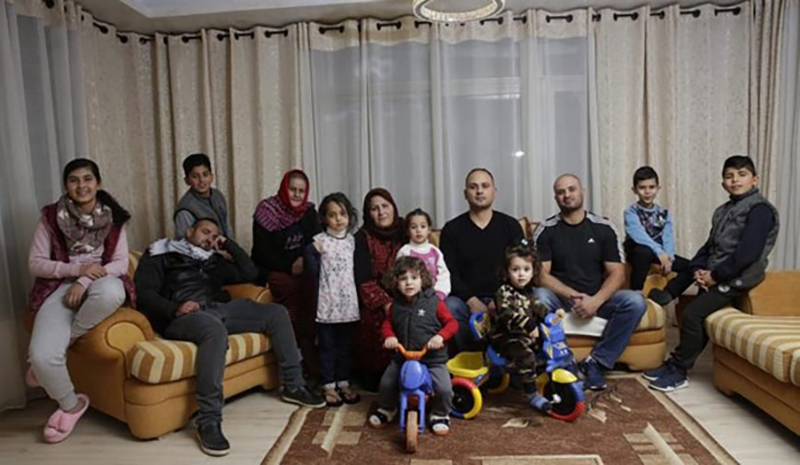Following a 32-year long struggle by the Sumreen family to remain in their home in Silwan, East Jerusalem, they were told they can stay. On Monday, 3rd April, the Israeli Supreme Court accepted the appeal of the Sumreen family and overturned the decisions by the Magistrate’s Court and District Court that would have allowed the eviction to take place. This means that the eighteen members of the family will not be evicted and replaced by settlers as desired by the Jewish National Fund (JNF) and Elad, the settler group who had declared the home ‘absentee property’ and spent millions of dollars in its attempt to seize the family’s property.
Over the years, several NGO’s, local and international, joined in the struggle for justice for the Sumreen family. ICAHD UK also played its part by raising the issue of the Sumreen family through awareness-raising articles, a webinar with the family, fund-raising for legal fees, lobbying initiatives and a meeting involving British parliamentarians chaired by the director of ICAHD UK.
The court case was only about the right of the Sumreen family to live in the house and not about ownership status. Nevertheless, the fear of being thrown out into the streets and made homeless has ended. While not a complete victory this is huge. Rabbi Arik Ascherman from Torat Tzedek, Torah of Justice, has provided his additional perspectives which will help us remain vigilant in case there are further developments:
- Based on the permission granted to live in the home given by the family member who was the recognized owner of the home, the court ruled that the generation now in their thirties and forties cannot be evicted. They should live long and prosper. While it is unwise to say that anything is irreversible, Elad should never be underestimated, and the current attempt to overthrow our judicial system seeks to change the rules of the game, this is basically a final and irrevocable decision. We hope that the Occupation will end in their lifetimes, but we don't know what might happen after the last protected generation is no longer alive and residing in the home.
- The ownership of the home has not been returned to the family. There has been some initial discussion, and there will undoubtedly be further discussion, as to whether this ruling could be a safe basis for again asking that the home be registered in their name. This decision does not create an opening for getting back the confiscated yard that part of the Elad visitor center is now built on.
- There will need to be discussion as to what the implications of this ruling are for other cases. The judges did criticize how this case has been dealt with, but do not fundamentally challenge the legitimacy of the Absentee Property Law. While my understanding, that others are invited to correct, is that the Absentee Property Law is less of a factor in the threats facing numerous additional families in East Jerusalem, it could become a factor again were Israel to annex some or all of the West Bank.
- I am personally curious to learn what the potential implications of the import given to rights granted by permission of a recognized owner/legal tenant might be.
The perseverance of the Sumreen family is to be applauded because they refused to give up. May their story inspire all who are in the struggle for justice to continue with optimism believing that the tide can turn and that a better world is possible.
To learn more about the history of the Sumreen family and our campaign, see this section on the ICAHD website.

